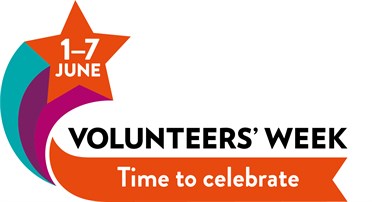
I was diagnosed on Christmas Eve 1997. The day before I had had a phone call, “Can you pop in to the Hospital for a MRI Brain scan?” Pop in for a brain scan on Christmas Eve! It confirmed the blood tests earlier in the week – I had a benign non-functioning adenoma (tumour) on my Pituitary gland. I must admit I was relieved to be told there was a problem and I would feel better after treatment.
The months preceding this diagnosis, I was feeling really ill, I was teaching in a Pupil Referral Unit, for 15 and 16 year olds who were too disruptive to stay in their school. I was acting Head as the Teacher in Charge was off sick! It felt as though my body was closing down, I was so tired, everything was a real effort. One day one of the most difficult pupils I’d ever taught said to me “Hey Miss, you need to see your doctor”. I asked why and he replied “the amount of water you are drinking, it is obvious you have diabetes!”
I was totally unaware that I was drinking loads of water (and passing vast amounts of urine). I tested my urine, it was OK so when I told my GP, she said with a pained look on her face. ”Oh dear!” and that was the beginning of my Pituitary journey. The pupil was partially right, I had Diabetes Insipidus, not the Diabetes Mellitus he was familiar with. I learned later his dad was a diabetic.
Work and health
A couple of weeks later I met the surgeon who explained I needed an urgent operation as the tumour was affecting my peripheral vision. However, I would have to wait 3 months as my hormone levels were so low it was amazing I was still alive, never mind teaching!
I decided to take ill-health retirement and the Education authority were totally in agreement and very supportive. A year on, I was feeling much better, especially after starting the growth hormone injections. They completely transformed my life. I was 51 years old and I felt a little lost, I needed something to fill the gaping hole in my life. I volunteered to help at the London Area Pituitary Patients Support (LAPPS) meetings. Soon I was co-Area Coordinator and next thing I knew I was running the group with the help of a Committee! It was hard work and time consuming but it did help me get my life back on track.

London Support Group
I am very pleased that LAPPS is still running some 16 years later. We have over 700 members and 52 medics on our mailing lists. We meet 3 times a year at teaching hospitals across London where the senior Endocrine Consultant give a talks on specific Pituitary problems. They are always happy to answer all our questions. LAPPS continue to build a strong relationship with so many Consultants and Neurosurgeons across London as well as their Endocrine Nurses and we are indebted to their valued and continued support.
Similarly, LAPPS has a strong working relationship with all the staff at the Pituitary Foundation and without them we couldn’t exist.
Patient Support Helpline
Sometime later I was asked if I would take a 3 hour shift each week on the National Helpline. I was a little apprehensive as I was no too sure about the other pituitary conditions. Reading the pamphlets, and having listened to the talks at LAPPS meetings, I realised I had a reasonable understanding. I really enjoy the Helpline, I never know what will be thrown at me.
Just sharing my experiences is very comforting to some people. There are two regular comments:
- “I have never met anyone else with a Pituitary Tumour, I feel so isolated“
- “It is so lovely to talk to someone who has the same condition as me, my family and friends have no idea what I am going through”.
Other callers have much more complex and serious problems – if it is out of my knowledge, I have no hesitation in saying so and refer the caller to the Endocrine Nurse Helpline.
My life now
I am now 21 years down the line, I have had several problems along the way but at last my tumour has gone and my condition is stable. I have a happy and full life, always busy. My main hobby is sailing. My husband and I have a small yacht and we sail most weekends in the sailing season and go on a 3 week trip each year. Also, whenever I get the chance I crew on a friend’s boat. Sailing has been my life-line through all my Pituitary problems and is still very important.
Volunteering, specifically organising the LAPPS meetings and quarterly Newsletters and taking on one session for the National Helpline has given me a sense of purpose and the satisfaction. Particularly in helping others to cope with their initial diagnosis and/or managing their condition.







